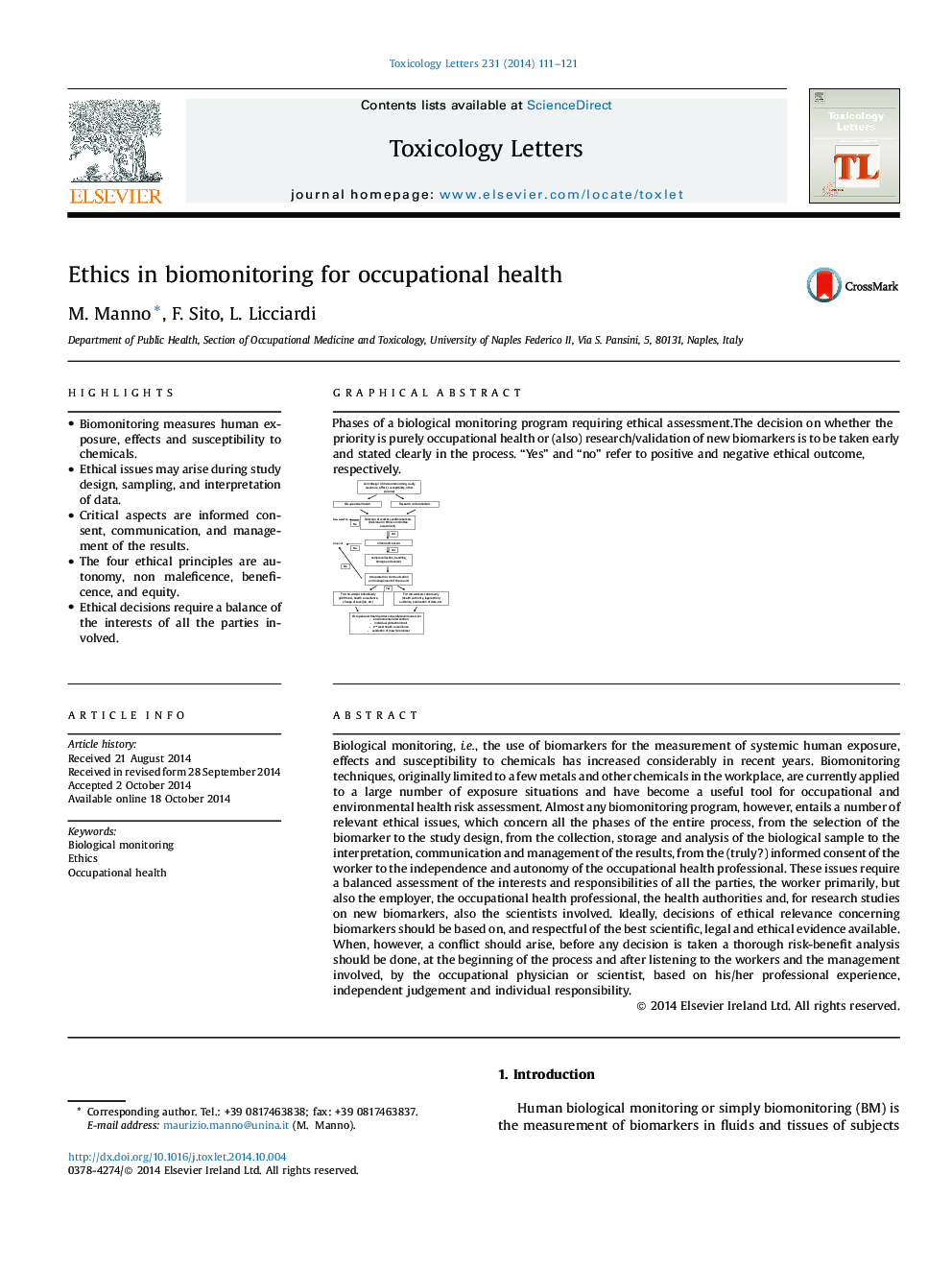| کد مقاله | کد نشریه | سال انتشار | مقاله انگلیسی | نسخه تمام متن |
|---|---|---|---|---|
| 5860093 | 1133165 | 2014 | 11 صفحه PDF | دانلود رایگان |
- Biomonitoring measures human exposure, effects and susceptibility to chemicals.
- Ethical issues may arise during study design, sampling, and interpretation of data.
- Critical aspects are informed consent, communication, and management of the results.
- The four ethical principles are autonomy, non maleficence, beneficence, and equity.
- Ethical decisions require a balance of the interests of all the parties involved.
Biological monitoring, i.e., the use of biomarkers for the measurement of systemic human exposure, effects and susceptibility to chemicals has increased considerably in recent years. Biomonitoring techniques, originally limited to a few metals and other chemicals in the workplace, are currently applied to a large number of exposure situations and have become a useful tool for occupational and environmental health risk assessment. Almost any biomonitoring program, however, entails a number of relevant ethical issues, which concern all the phases of the entire process, from the selection of the biomarker to the study design, from the collection, storage and analysis of the biological sample to the interpretation, communication and management of the results, from the (truly?) informed consent of the worker to the independence and autonomy of the occupational health professional. These issues require a balanced assessment of the interests and responsibilities of all the parties, the worker primarily, but also the employer, the occupational health professional, the health authorities and, for research studies on new biomarkers, also the scientists involved. Ideally, decisions of ethical relevance concerning biomarkers should be based on, and respectful of the best scientific, legal and ethical evidence available. When, however, a conflict should arise, before any decision is taken a thorough risk-benefit analysis should be done, at the beginning of the process and after listening to the workers and the management involved, by the occupational physician or scientist, based on his/her professional experience, independent judgement and individual responsibility.
Phases of a biological monitoring program requiring ethical assessment.The decision on whether the priority is purely occupational health or (also) research/validation of new biomarkers is to be taken early and stated clearly in the process. “Yes” and “no” refer to positive and negative ethical outcome, respectively.
Journal: Toxicology Letters - Volume 231, Issue 2, 1 December 2014, Pages 111-121
